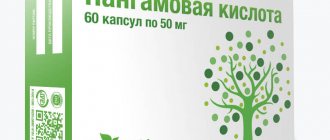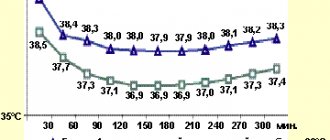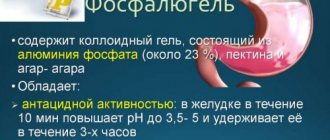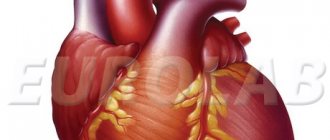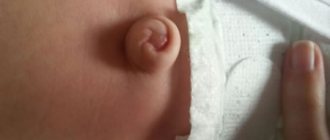Interferons are a special class of drugs that affect the immune system and have antiviral, antitumor and immunomodulatory effects.
Interferon preparations are similar to natural human interferons, which are complex proteins produced in our body in response to viruses. Interferons prevent viruses from entering cells and also block the proliferation of viruses in the body.
In addition to viruses, interferons are able to neutralize cancer cells, preventing the progression of tumor diseases.
Interferons also act as immunomodulators - agents that normalize immunity. Interferons increase decreased immunity and slightly inhibit increased immune response.
In addition to drugs, in fact, interferons themselves, there is a separate class of drugs: inducers of interferon synthesis, which increase the body’s production of its own (endogenous) interferons.
Content
- The severity of COVID-19 depends on interferon. How does the level of interferon affect the severity of the disease?
- Early treatment with interferon reduces mortality and accelerates recovery, later it worsens the disease
Scientific and clinical effectiveness of interferon alpha for the prevention and treatment of ARVI
A 2014 study on human cell cultures using electron microscopy proved the antiviral effect of interferon alpha.
In 2013, treatments for experimentally infected monkeys were studied. Treatment with interferon alfa and ribavirin demonstrated a significant reduction in the development of symptoms of viral pneumonia, respiratory failure and a decrease in the synthesis of proinflammatory cytokines.
To date, the clinical effectiveness of intranasal interferon alpha for viruses has already been shown:
- Adenovirus
- Coronavirus
- Rhinovirus
- Influenza A virus (H1N1, H3N2)
- Influenza B virus
- Parainfluenza virus
- Respiratory syncytial virus
Recombinant interferon alpha, administered externally into the respiratory tract, can enhance the antiviral effect.
Local application of interferon alfa allows the drug to be administered exactly where the drug is intended to act. Now there are various dosage forms: nasal drops, aerosol, spray. Local rather than systemic use can significantly reduce the dose of interferon alpha and eliminate side effects.
The use of intranasal interferon alpha can give a good preventive effect during an epidemic of influenza, coronavirus and other respiratory viruses.
The severity of COVID-19 depends on interferon
Interferon (IFN) is produced in the body in response to a viral attack and triggers all antiviral defense mechanisms “How does interferon work.” Early production of IFN will either prevent infection or alleviate its course .
The coronavirus SARS-CoV-2, which causes COVID-19, is the most vulnerable to interferon of all known coronaviruses that infect humans. SARS-CoV-2 cannot multiply if there are enough IFN molecules at the site of its entry into the body. However, the coronavirus has different proteins to mitigate this vulnerability in all possible ways:
- suppress the signal about a viral attack, which begins the synthesis of IFN;
- prevent the production of IFN if a signal of a viral attack does occur;
- interfere with the functioning of the IFN if it is produced.
This significantly delays the body's interferon response to the coronavirus attack. The virus manages to multiply unhindered and damage almost all tissues and organs “Extrapulmonary manifestations of COVID-19.”
Late interferon response worsens COVID-19 . A delayed interferon response leads to a surge in immune activity and the production of an unreasonably large number of signaling molecules - cytokines. Cytokines stimulate hyperinflammation “Cytokine storm”, when not only coronavirus-infected cells are destroyed, but also healthy ones nearby. Interferon is also a cytokine, and its delayed response enhances the cytokine storm.
How interferon levels affect the severity of the disease
Severe and critical forms of coronavirus infection are most often recorded in patients with dysfunction of the interferon system:
- insufficient production of IFN at the initial stage of the disease;
- immune abnormalities that contribute to the destruction of one’s own IFN;
- smokers and vapers in whom tobacco smoke and vape vapor depress the IFN system “Vape, cigarettes, hookah help even young people and teenagers get sick with coronavirus.”
An association between the severity of COVID-19 and insufficient interferon production has been demonstrated in clinical studies.
One of the early studies was conducted at the University of Paris and the Pasteur Institute: “Severe conditions with COVID-19 are associated with the ability of SARS-CoV-2 to suppress the production of interferon in the body.” Scientists have found that in 95% of cases, low levels of IFN and suppression of the activity of interferon-stimulated genes in patients lead to respiratory failure and acute respiratory distress syndrome requiring mechanical ventilation. The results of a series of analyzes performed at different periods of the patients’ illness revealed a clear relationship:
- in patients with mild to moderate severity, a consistently high level of IFN was observed;
- in severe patients - short-term high levels of IFN;
- in critical cases - low level or absence of IFN.
Details of the work were published in the journal Science.
In another study, an international group of doctors from Italy, Australia, and the UK quantitatively studied the lack of IFN in people with coronavirus infection “Dynamics of interferon-alpha in the blood of patients with COVID-19.” The level of IFN in patients was almost 4 times lower than in people from the control group. In surviving patients, the level increased as they recovered, while in those who died, it remained low. The details were published in the journal Frontiers in Immunology.
Immune abnormalities associated with interferon aggravate the course of COVID-19 . Often, due to concomitant diseases, advanced age, congenital genetic abnormalities, or treatment with large doses of IFN, the immune system begins to destroy IFN molecules as if they were foreign particles “Gene mutations cause the body to attack its main antiviral defense proteins.” As a result, the level of IFN falls, and in case of coronavirus infection the person becomes more seriously ill, and the blood plasma of such a recovering patient can aggravate the illness of the person to whom this plasma is transfused.
A quantitative assessment of the number of patients with COVID-19 and immune abnormalities was carried out by American scientists from Yale University “Autoantibodies complicate the course of COVID-19.” They found that approximately 5% of hospitalized patients have antibodies against IFN, which help destroy it. The details were published in the journal Nature.
Most antibodies against interferon are found in men. They account for about 94% of such cases. This is because the gene that regulates immune activity is located on the X chromosome How gender affects immunity in COVID-19. Men have one X chromosome, and women have two.
Immune abnormalities associated with IFN also occur in the elderly. An international team of more than 150 scientists conducted a large-scale study that found that about 4% of uninfected people over 70 have the abnormality. “Interferon autoantibodies increase the risk of critical COVID-19 in the elderly.” These abnormalities account for 20% of COVID-19 deaths. The details were published in the journal Science.
Antibodies against interferon neutralize treatment of COVID-19 with IFN drugs. This effect was demonstrated in a cellular model by a joint team of scientists from the United States and France. Details of the work were published in the Journal of Experimental Medicine.
Imbalance of innate and acquired immune responses
The task of innate immunity is to block viral replication through the synthesis of interferon and to induce adequate synthesis of proinflammatory cytokines to activate acquired antiviral immunity.
However, highly pathogenic influenza viruses induce a hyperinflammatory response with hypersynthesis of proinflammatory cytokines. A state of acute hypercytokinemia develops. It happens that it is not supported by a sufficient level of endogenous interferon and the development of effective acquired immunity. Then inappropriately strong inflammation occurs, the development of respiratory distress syndrome, pulmonary edema and death of patients in especially severe cases.
What types of interferon are effective against coronavirus infection?
Three types of human interferon are known, differing in the nuances of antiviral activity “Current level of knowledge about human IFN”. All three types have shown to be effective against COVID-19.
Type 1 interferons: alpha (α), beta (β)
- Activate the antiviral state of cells.
- They trigger the production of proteins that fight the virus at all stages of its life cycle “The role of IFN in the pathogenesis of infectious diseases.”
The most studied member of this family is interferon alpha. It is widely used in different countries of the world against coronavirus infection “Interferon-alpha 2b for the prevention and treatment of COVID-19.”
Interferon beta is also used to treat COVID-19, but has not yet been included in national recommendations. The preventive effectiveness of IFN-beta is still being debated by the scientific community.
Other interferons of this type have been little studied, and there are no approved drugs yet.
Interferon type 3: lambda (λ)
The functions of IFN-3 are similar to IFN-1, their difference is in the scope of action “Types I and III interferons for the fight against COVID-19.” IFN-3 is produced in epithelial cells, such as those of the respiratory tract, and IFN-1 is produced by almost all cells of the body, with the exception of red blood cells and neurons. The study of type 3 interferon is at the stage of clinical trials “The role of IFN-3 in the control of SARS-CoV-2 in intestinal epithelial cells”; there are no approved drugs yet.
Interferon type 2: gamma (γ)
- Attracts phagocyte cells to the site of infection to destroy viruses and infected cells.
- Increases the activity and survival of phagocyte cells.
- Stimulates the acquired immune system to produce highly effective antiviral defense molecules “Immunological memory to the SARS-CoV-2 coronavirus: five components of the immune response.”
The preventive effectiveness of type 2 interferon against coronavirus infection has been confirmed by clinical studies.
In Cuba, type 2 interferon is used in conjunction with IFN-1 to treat COVID-19.
Effect of endogenous interferon levels on protection against influenza virus
In 2021, it was experimentally proven that restoration of intestinal microflora improved the synthesis of interferon by lung epithelial cells.
The study was conducted on mice. Antibiotics disrupted the composition of the intestinal microflora. As a result, the level of interferon in the lungs decreased and resistance to experimental infection with the influenza virus decreased. A severe course of the disease was observed as the virus replication became more active.
Normalization of the microbiota restored interferon synthesis and protection against the influenza virus. The study proved that the stimulating effects of intestinal microflora provide tonic signals to activate the expression of interferon genes.
Prevention of COVID-19
To prevent coronavirus infection, only nasal (for the nose) forms of type 1 and 2 interferons are used. Nasal cells are the main entry gates of infection; they bear the main viral attack. Nasal formulations use low doses of IFN to keep systemic exposure below the laboratory detection threshold.
Interferon type 1
The preventive effectiveness of type 1 interferon against the SARS-CoV-2 coronavirus was proven in a study by American scientists. Pre-treatment of the cell culture with IFN-1 18 hours before infection reduced the rate of coronavirus multiplication by 10,000 times on the second day of illness compared to untreated cells. Details of the study were published in the Journal of Virology.
In China, Cuba, and Russia, nasal IFN-1 preparations are used to protect doctors in Covid departments, families of sick people, international tourists, people with immunodeficiency and concomitant diseases, the elderly, pregnant women and newborns. More information about the preventive effectiveness and drugs used can be found in the review of clinical studies and excerpts from the recommendations of national health authorities “Interferon alfa-2b for coronavirus infections, influenza and acute respiratory viral infections.”
Interferon type 2
A nasal preparation of type 2 interferon showed its preventive effectiveness in a clinical study conducted in Russia. Details of the study were published in the International Journal of Biomedicine.
Treatment of COVID-19
Interferon is a highly active molecule, so treatment with systemic drugs is carried out only by qualified specialists.
Early treatment with interferon reduces mortality and accelerates recovery, later it worsens the disease
A number of studies on the effectiveness of interferon for COVID-19 have revealed a dependence: the timing of treatment initiation is critical - up to 5 days from the onset of symptoms .
Interferon type 1
Chinese experts studied the results of treatment of 1,401 patients with coronavirus infection with nebulized IFN-1 “Inhalation of interferon-α2b improves clinical outcomes of patients with COVID-19.” The best treatment results were when the drug was started 0 to 2 days after the onset of symptoms: adverse clinical outcomes were less than 1%. If treatment was started after 6 days, then severe or critical form of the disease occurred in almost 6% of cases. The details were published in the British Journal of Clinical Pharmacology.
In another study, Chinese researchers examined the effectiveness of using inhaled interferon alpha-2b in conjunction with glucocorticoids.
A hallmark of severe COVID-19 is uncontrolled systemic inflammation due to overactivation of the immune system. Glucocorticoids (GCs) are anti-inflammatory drugs that doctors prescribe to reduce mortality from severe COVID-19. However, GCs suppress the interferon system, which leads to a delay in viral clearance and adverse outcomes in various viral pneumonias.
Even in the presence of glucocorticoids, inhaled interferon effectively restores antiviral immunity. Early administration of glucocorticoids along with interferon speeds hospital discharge, symptom relief, and viral clearance:
- Patients who received early treatment with interferon (6-11 days after symptom onset) together with GC recovered earlier. When receiving GC, interferon accelerated the elimination of the virus.
- When GC and IFN were administered together in the early stage of COVID-19, the duration of symptoms and hospital stay were shorter than when GC alone was administered without IFN. However, with late administration of GC, interferon did not have such an effect.
Details of the study are in the article “Early administration of interferon and glucocorticoids accelerates recovery from COVID-19.” The study was published in the journal Nature.
Doctors from the UK also studied the effectiveness of nebulized IFN-1 "Inhaled interferon β-1a reduces mortality in COVID-19 and speeds recovery." On day 28, the chances of recovery in the placebo group were 3 times lower than in the group receiving interferon. Details of the study were published in The Lancet.
Iranian doctors studied the safety and effectiveness of subcutaneous administration of IFN-1 to patients with coronavirus infection “Systemic therapy with interfron-beta-1a reduces mortality from COVID-19 by 2 times.” The best clinical outcome was in patients receiving IFN:
- on day 14, 67% of patients were discharged compared to 44% of patients who did not receive injections;
- The 28-day mortality rate was 19% in the interferon group and 43% in the no-IFN group;
- early administration of interferon reduced the risk of death by 13 times.
Details were published in the journal Antimicrobial Agents and Chemotherapy.
Indian scientists investigated the effectiveness of a single intramuscular injection of IFN-1 to treat patients with COVID-19 “Interferon alfa-2b is approved for the treatment of COVID-19 in India.” These people required less oxygen support than patients receiving standard therapy: 56 hours versus 84. Symptoms resolved 1 day faster in the IFN group. The details were published in the International Journal of Infectious Diseases.
Russian scientists studied the combined use of rectal suppositories and IFN-1 nasal gel as part of complex therapy for coronavirus infection. In the group receiving additional interferon treatment, recovery occurred 7 days earlier than in patients receiving only standard treatment. The details were published in the journal Infectious Diseases.
Interferon type 2
Another group of Russian specialists studied the effectiveness of IFN-2 against COVID-19. Doctors used subcutaneous injection in addition to standard therapy. The duration of hospitalization in the interferon group was 2 days less than in the group receiving standard therapy only. Also, in the IFN group, respiratory failure did not progress and the need for intensive care decreased. The details were published in the journal Virology Issues.
French scientists have investigated the use of interferon-gamma for long-term COVID-19. Scientists have described prolonged forms of SARS-CoV-2 infection with persistent fever and worsening breathing in patients receiving rituximab to treat autoimmune diseases.
Rituximab is an anti-B cell monoclonal antibody that depletes B cells. Patients treated with rituximab did not develop IgG antibodies to SARS-CoV-2, which slowed the clearance of the virus.
One method of treating patients with severe coronavirus infection is the administration of convalescent plasma. However, sometimes convalescent plasma does not have a therapeutic effect.
French scientists described a clinical case of a 68-year-old patient with long-term COVID-19, whose condition did not improve after receiving convalescent plasma; the degree of bilateral lung damage continued to increase. The patient was prescribed interferon-gamma (IFN-γ) therapy – 100 mcg per day subcutaneously for 3 days. Administration of IFN-γ improved the patient's condition within several days.
Interferon-gamma immunotherapy improved the antiviral response by enhancing T cell cytotoxicity and expression of major histocompatibility complex molecules on the cell surface of monocytes and infected cells. IFN-γ treatment prevented the need for mechanical ventilation.
Details of the study are in the article “Interferon-gamma treats long-term coronavirus.” The study was published in the Journal of Medical Virology.
Use of interferon in risk groups: type 2 diabetes
People with type 2 diabetes have an increased risk of severe COVID-19. A common cause is a cytokine storm, which causes tissue destruction and multiple organ failure. The main role in the development of a cytokine storm is played by key cells of the innate immune system—macrophages.
One of the properties of macrophages is plasticity. At the stage of infection development they:
- destroy viral particles and infected cells, and thus stimulate inflammation;
- under the influence of cytokines, they produce additional cytokines to increase inflammation and quickly suppress the infection.
During the recovery phase after the acute phase of the disease, macrophages change their functions and suppress inflammation, promoting tissue healing.
In type 2 diabetes, the SARS-CoV-2 coronavirus suppresses the plasticity of macrophages. Macrophages continue to increase cytokine storm and hyperinflammation rather than suppress inflammation and support organ repair. Interferon beta restores macrophage plasticity. However, during coronavirus infection in people with type 2 diabetes, IFN-beta levels are reduced to almost zero.
As a result of laboratory studies, scientists from the University of Michigan (USA) showed that early administration of IFN-beta reduces inflammation and prevents cytokine storm caused by macrophages in people with type 2 diabetes. “Interferon prevents cytokine storm in coronavirus in diabetic patients.” Details of the study are published on the Proceedings of the National Academy of Sciences of the USA website.
Antiviral treatments targeting the interferon system
Increasing the effectiveness of interferon is an important strategy to combat COVID-19. The antiviral drug imidazolylethanamide pentanedioic acid (IPA) increases the susceptibility of body cells to IFN molecules. The mechanism of action is based on stimulation of the synthesis of interferon receptors on the surface of cells.
Russian scientists studied the effectiveness of the drug against COVID-19 as part of complex therapy. Research results:
| Index | Standard treatment + IPC | Standard treatment |
| Time until body temperature normalizes (days) | 4,5 | 7,1 |
| Time until disease severity decreases by 3 levels on the WHO scale (days) | 10,3 | 15,0 |
| % of patients whose disease severity decreased by 3 levels on the WHO scale on day 6 | 44,4 | 10,5 |
| Time to reach SpO2 ≥95% (days) | 3,6 | 6,4 |
Details of the study were published in the journal Therapy.
Counteracting viruses to the body's immune system
Different types of viruses have learned to block the first signaling pathway – the induction of interferon synthesis. Moreover, they block the second signaling pathway – the action of interferon itself. Violation of interferon synthesis leads to severe viral diseases.
To fight viruses that block the action of interferon, humanity has learned to make additional interferon molecules. These genetically engineered molecules are completely identical to endogenous ones. With their help we can overcome the blocking effect of viruses.
When the influenza virus, coronavirus, or MS virus infect the upper respiratory tract, the synthesis of just a few cytokines is activated.
If the lower respiratory tract is infected by these viruses, hypersecretion of mucus, collapse of the alveoli, infiltration of immune cells, and impaired air exchange as a result of pulmonary edema may develop. In this case, the synthesis of most cytokines increases. This suggests that in severe cases, infection with the virus leads to activation of the immune system, and if there is a lack of interferon alpha, it can lead to severe clinical manifestations.
conclusions
To prevent COVID-19, nasal forms of type 1 and type 2 interferons are used. They protect the part of the body that is most vulnerable to coronavirus - the nasal mucosa. The use of nasal medications is recommended for all groups of the population, but especially for people at risk:
- doctors of covid departments;
- families of the sick;
- international tourists;
- people with immunodeficiency and concomitant diseases;
- elderly;
- pregnant women and newborns.
Nasal and systemic preparations of type 1 and 2 interferons are used to treat COVID-19 It is important to start treatment within the first 5 days of the onset of symptoms. Then the disease will pass easier and faster. Late initiation of treatment aggravates coronavirus infection and delays recovery.
IFNs are highly active molecules, therefore treatment with systemic drugs is carried out only by qualified specialists.
Interferon inducers
Interferon inducers are substances that induce the cell to produce its own interferon. They can have a different nature, be of natural or synthetic origin. Among the products in this group you can find: meglumine acridone acetate, gossypol copolymer (plant pigment), tilorone.
Interferon inducers are used for the prevention and treatment of acute respiratory viral infections along with recombinant interferon, but for a pronounced therapeutic effect they need much more time, from 2 to 5 days. As a rule, medications in this group are available in tablet form and have age-related contraindications for use. Also recommended for the treatment of herpes.
Sources
- Impaired type I interferon activity and inflammatory responses in severe COVID-19 patients
- Blood Interferon-α Levels and Severity, Outcomes, and Inflammatory Profiles in Hospitalized COVID-19 Patients
- Diverse functional autoantibodies in patients with COVID-19
- Autoantibodies neutralizing type I IFNs are present in ~4% of uninfected individuals over 70 years old and account for ~20% of COVID-19 deaths
- Early nasal type I IFN immunity against SARS-CoV-2 is compromised in patients with autoantibodies against type I IFNs
- Nasopharyngeal Type-I Interferon for Immediately Available Prophylaxis Against Emerging Respiratory Viral Infections
- PROTOCOLO DE ACTUACIÓN NACIONALPARA LA COVID-19
- Type I Interferon Susceptibility Distinguishes SARS-CoV-2 from SARS-CoV
- Efficacy of Interferon Gamma in the Prevention of SARS-CoV-2 Infection (COVID-19): Results of a Prospective Controlled Trial
- Interferon-α-2b aerosol inhalation is associated with improved clinical outcomes in patients with coronavirus disease-2019
- Safety and efficacy of inhaled nebulised interferon beta-1a (SNG001) for treatment of SARS-CoV-2 infection: a randomized, double-blind, placebo-controlled, phase 2 trial
- A Randomized Clinical Trial of the Efficacy and Safety of Interferon β-1a in Treatment of Severe COVID-19
- Efficacy and safety of pegylated interferon alfa-2b in moderate COVID-19: A phase II, randomized, controlled, open-label study
- The use of interferon alfa-2b in the complex treatment of patients with COVID-19
- Interferon gamma in the treatment of patients with moderate COVID-19
- Coronavirus induces diabetic macrophage-mediated inflammation via SETDB2
- Therapy of patients with COVID-19: results of assessing the effectiveness and safety of the inclusion of the drug Ingavirin® in the recommended standard therapy regimen in real clinical practice
Articles on similar topics:
